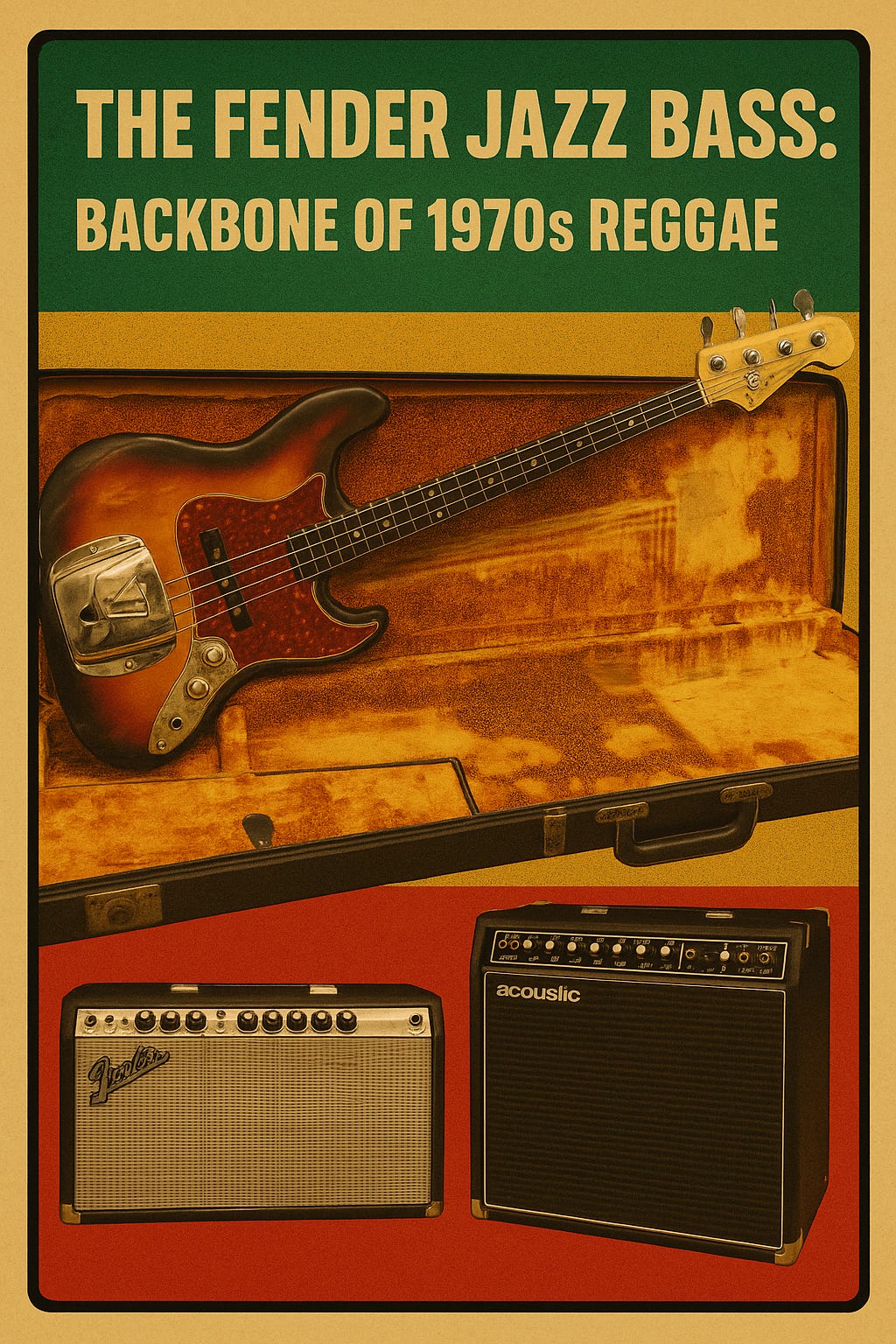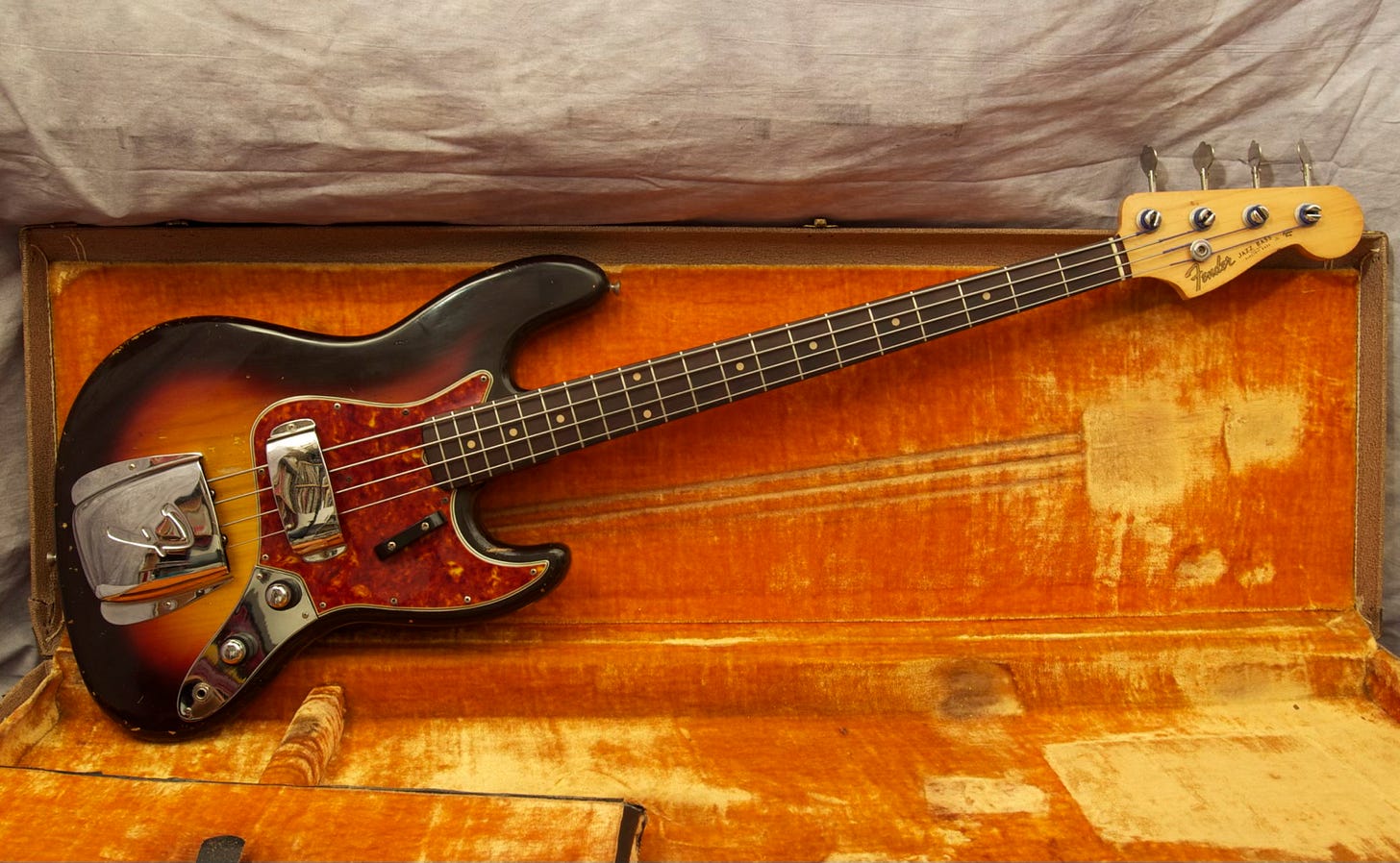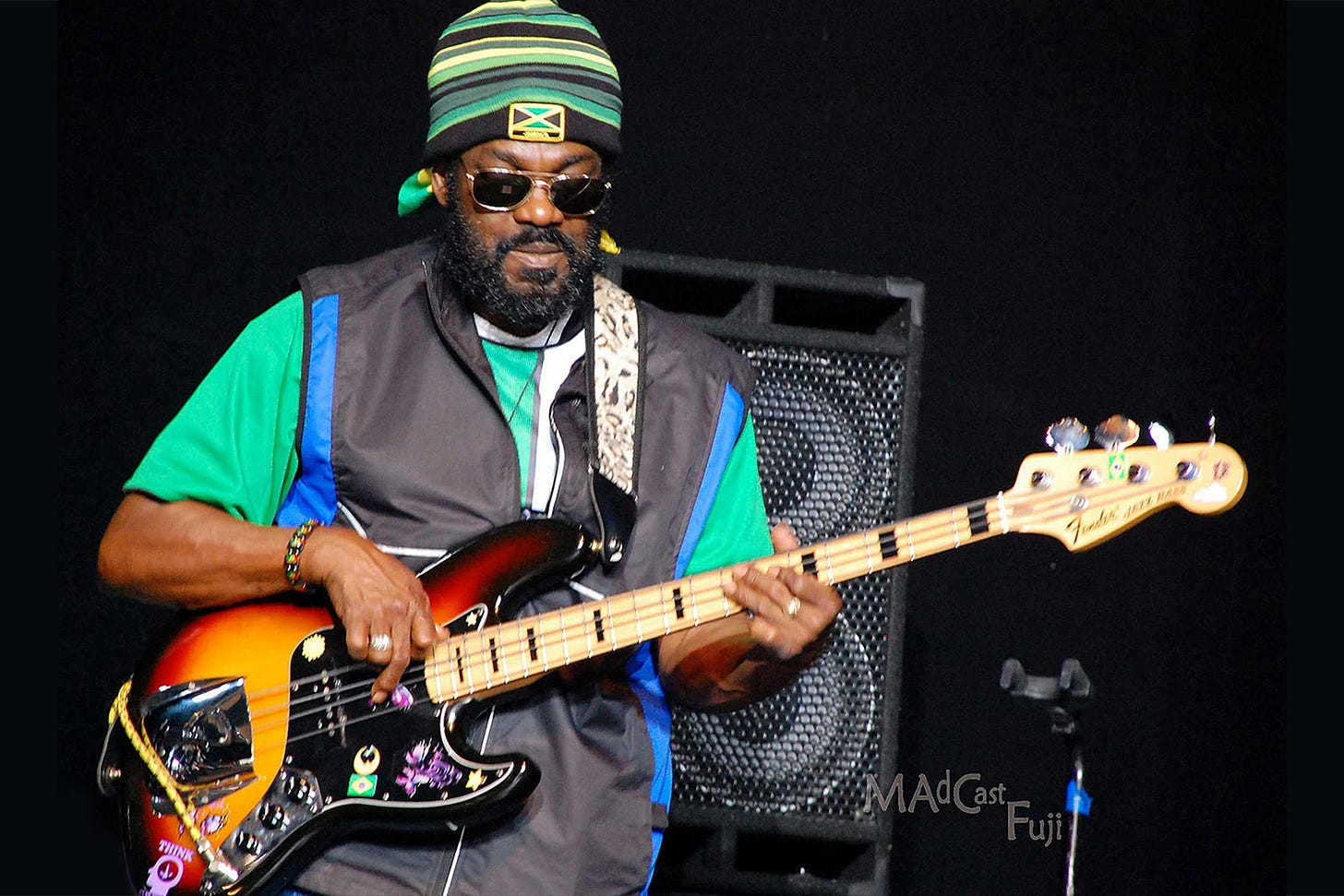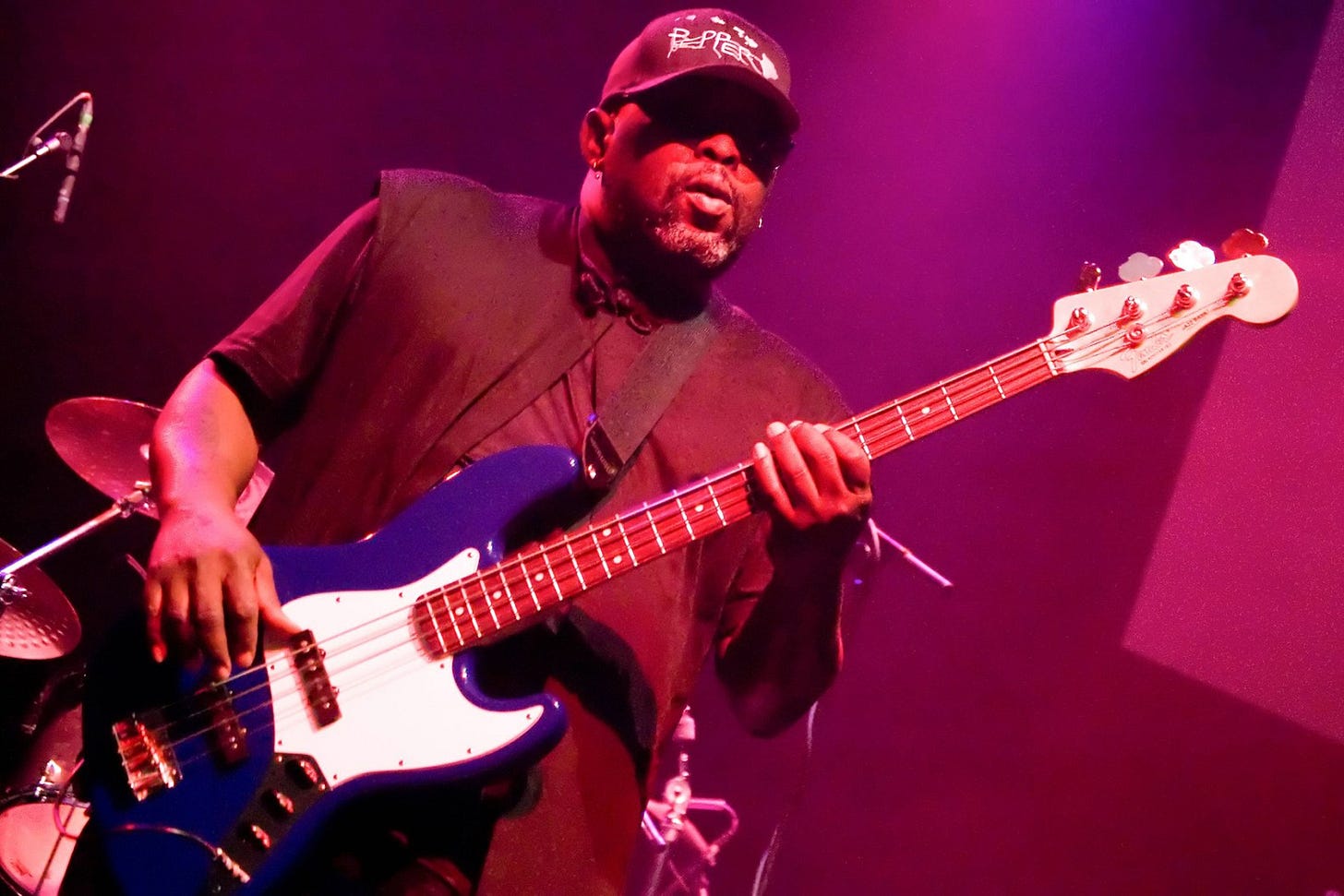The Fender Jazz Bass: Backbone of 1970s Reggae
From Kingston studios to dub legends — how one bass shaped the sound of a generation.
The Origins of the Fender Jazz Bass
In 1960, Leo Fender introduced the Fender Jazz Bass (J-Bass) as a sleek, more versatile alternative to the Precision Bass. With its offset waist, slimmer neck, and dual single-coil pickups, the Jazz Bass delivered a tone that was brighter, punchier, and more articulate — ideal for dynamic playing styles.
It didn’t take long for the Jazz Bass to move from jazz clubs into soul, funk, rock, and reggae, where it carved out its own identity.
Why It Became a Reggae Staple
By the 1970s, reggae had evolved into a bass-driven genre where the groove was king. The Jazz Bass offered:
A tight low-end with clarity and punch
Pickup blending for warm or sharp tones - Dual pickups allowed bassists to fine-tune tones for studio/live
The slimmer neck made it easier to play for extended sessions
Produced a clearer high-end and midrange, crucial for dub mixes
Fit the needs of both melodic players and groove-locked rhythm players
Jamaican session players and producers gravitated to the Jazz Bass because it delivered the sub-heavy, melodic, and rhythmic backbone of roots reggae and dub.
1. Aston “Family Man” Barrett
Associated With: Bob Marley & The Wailers
Bass: Fender Jazz Bass
Strings: Custom flat-wound strings selected from a 5-string set, provided by Fender annually
Amplification: Ampeg SVT in studio settings; Acoustic 370 for live performances
Playing Style: Utilized the neck pickup with the tone rolled off, plucking near the neck to achieve a deep, upright bass-like tone
2. Robbie Shakespeare
Associated With: Sly & Robbie, Black Uhuru, Peter Tosh
Bass: Fender Jazz Bass; also known to use PRS Grainger 4-string bass
Strings: Medium gauge flat wounds during specific sessions
Amplification: Markbass SA 450 amplifier with 6x10 cabinets
Playing Style: Incorporated effects like chorus, delay, and flanger; known for his innovative dub techniques
3. Boris Gardiner
Associated With: Studio One, Treasure Isle (Byron Lee’s Dragonaires, The Aggrovators, Crystalites)
Bass: Fender Jazz Bass (specific model year unconfirmed)
Playing Style: Known for smooth, melodic lines with a relaxed feel
4. Errol “Flabba” Holt
Associated With: Roots Radics (and many more)
Bass: Fender Jazz Bass with modifications, including EMG J-HZ pickups
Strings: Flatwound strings for a deep, sustained tone
Amplification: Often recorded direct input (DI); live amplification details vary
Playing Style: Focused on steady, minimalistic grooves that provided a solid foundation for dub and dancehall tracks
Donstrumental on Youtube
This is a solid resource for various reggae bass techniques and specific bassist styles
Final Thoughts
The Fender Jazz Bass didn’t just support reggae — it shaped it. Its distinct tone and feel made it the preferred weapon for the greatest bassists in Jamaica’s golden era. Whether laying down dubplates or grooving behind a legendary singer, the Jazz Bass helped give reggae its sonic soul.









